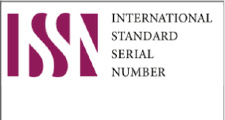Cognitive Warfare: An Indelible Dilemma Confronting Pakistan
Keywords:
Cognitive Warfare, Hybrid Warfare, Pakistan, National Security, Psychological Operations, Youth RadicalizationAbstract
Cognitive Warfare explores its inheritance from manipulation and deception targeting adversaries as one of the foremost integral components of a broader military tactics since the time immemorial. However, under the prevalent geopolitical environment, the nature of battlefield has unprecedentedly broadened from military as an exclusive player to almost every all segment of society. Under these international security environments, coercive and manipulative tactics have become obsolete thus creating a void for ‘influencing’, a phenomenon in which minds of masses of the target country are molded with the aim of drawing desired responses or reactions and obeying orders by ‘Influencers’ whose operational methodology is based on the requisite know-how, incentives, resources and, above all, the multifaceted strategy to wage cognitive warfare which is a domain of Hybrid Warfare. The employment of these manipulative tactics causes the desired reality distortion’ thus giving the influencer unprecedented access to the neural data of the target public, offering insights into how they perceive, assume, determine and then finally respond to stimuli. This process allows policy makers to hack and alter the masses’ perceived reality with the objective of influencing their behaviors. In this context, Pakistan since its creation, has emerged as one of the prime targets of cognitive warfare, first during the Cold War (1945-1991), then through the Union of Soviet Socialist Republics (USSR) invasion of Afghanistan (1979-1988), and now amidst the China-US struggle in South Asia. This study encompasses the impact of cognitive warfare waged by adversaries and competitors against the nation of Pakistan followed by the strategy to counter it.























